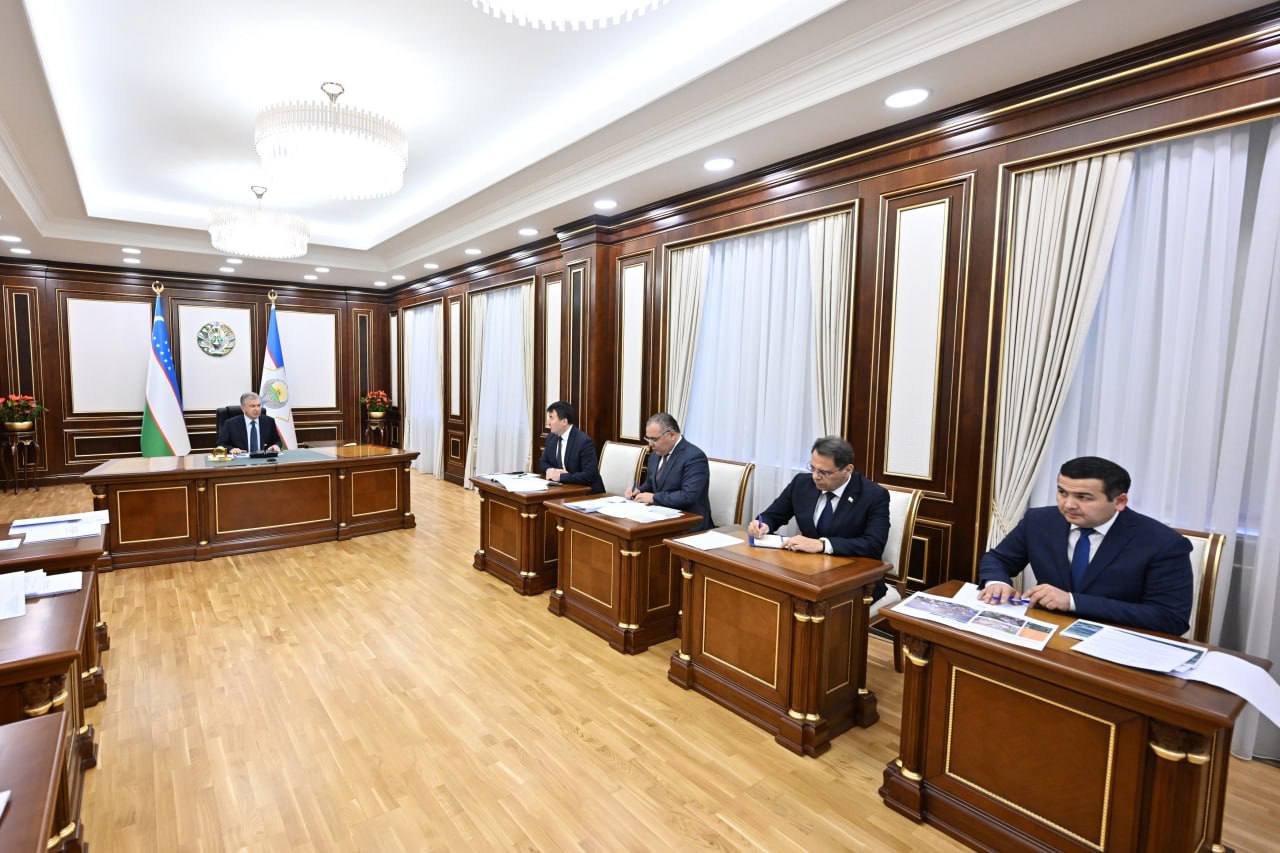It is reported on projects of international cooperation in agriculture
On March 3, President Shavkat Mirziyoyev got acquainted with the presentation on the development of international cooperation in the field of agriculture, the press service of the head of our state reports.
In the agro -industrial sector of our country, reforms are actively carried out aimed at improving the efficiency and developing market mechanisms. Advanced agricultural technologies and scientific achievements are widely introduced into the industry.
Recently, a group of experts visited China, Italy and Japan, where she studied the experience of scientific institutions, large companies and farms. As a result, new plans for cooperation have been developed.
As you know, the key factor in high yield is seed production. The Chinese Academy of Agriculture has rich experience in seed production and nursery. In Uzbekistan, 14 scientific institutes and 55 seed farms operate, however, significant gaps are preserved in the issues of breeding new varieties and the introduction of agricultural technologies. Due to the low efficiency of local seeds, farmers prefer to use foreign varieties.
In this regard, on the basis of the Center for Agricultural Services in the Yukorchirchik district, it is planned to create a semen -breeding and nursery system based on Chinese experience. This will be involved in 200 million dollars of investment, the creation of varieties of cotton wheat, rice, corn, grapes and fruit crops will be established. An exemplary territory with a full cycle of cultivation will be created – from the receipt of seedlings to their planting, plant protection, harvesting and subsequent processing using modern technology and drones.
One of the topical issues for the agricultural sector is the training of qualified personnel. The experience of Italy is noteworthy in this direction. In particular, the University of Bologna occupies an important place in providing personnel in Europe. Scientific institutions in Italy are actively cooperating with the private sector, create and commercialize high -quality varieties of agricultural crops.
In order to study this experience at the universities of Bologna, Tushia, Ferrars and Piza, 200 young people are planned to be sent this year. The University of Tushia proposed annually to train 30 specialists of food technologists based on grants and promote the organization of training in Uzbekistan.
In the world, programs for combining studies and work have proven themselves well. So, last year, the Samarkand Agrarian Institute and the International University of Agriculture sent a group of students to internship in Germany and the UK. In the Tashkent State Agricultural and International Agricultural Universities, the Ferghana Institute of Food Industry, centers for studying the Japanese language are created to send students to Japan.
Having supported the plans submitted, the head of state emphasized the need to expand cooperation with Hungary, the Netherlands, Canada, Australia and South Korea – countries with a developed agro -industrial sector. The Ministry of Agriculture was instructed to develop a program to increase the number of innovative projects in the regions.








